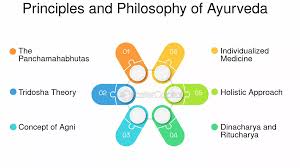The misconception that Ayurveda is purely spiritual or faith-based has persisted for years, overshadowing its deep scientific foundation and practical approach to health. Ayurveda blends time-tested empirical practices with logical frameworks, making it much more than just a spiritual tradition. By exploring the balance between Ayurveda science vs spirituality, we can better understand its holistic approach to healing.
Understanding the Science of Ayurveda
What is Ayurveda?
Ayurveda, translating to “the science of life,” is an ancient medical system that emphasizes evidence-based practices. While mindfulness and spirituality enhance healing, Ayurveda primarily focuses on:
- Herbal medicines with proven efficacy.
- Customized diets tailored to individual doshas.
- Therapies like Panchakarma, scientifically designed for detoxification.
Scientific Principles in Ayurveda
Many aspects of Ayurveda are backed by rigorous observations recorded in texts like Charaka Samhita. For example:
- Gut health: Ayurveda’s focus on digestion aligns with modern research on the gut microbiome.
- Doshas: Ayurvedic doshas (Vata, Pitta, Kapha) correlate with physiological traits in modern medicine.
Common Misconceptions
1. Ayurveda Is Just Faith-Based
This misunderstanding arises from its holistic approach. However, practices like herbal therapy and detox techniques are based on clinical efficacy, not blind faith.
2. Overemphasis on Spirituality
While Ayurveda uses yoga and meditation, these practices are scientifically proven to reduce stress and improve focus. Ayurveda does not equate spirituality with faith but sees it as mindfulness.
3. Lack of Scientific Awareness
The perception of Ayurveda as non-scientific stems from limited awareness of its empirical methods and modern validations.
Scientific Validation of Ayurveda
- Turmeric (Curcuma longa): Proven anti-inflammatory properties supported by research.
- Ashwagandha: Recognized in clinical trials for stress reduction.
- Triphala: Shown to improve digestion and detoxification.
Balancing Science and Spirituality in Ayurveda
Ayurveda uses science and spirituality together:
- Scientific Foundation: Herbs, treatments, and diet plans tailored to physiological needs.
- Spiritual Practices: Tools like meditation for emotional well-being.
This integration ensures holistic healing, focusing on the root causes of ailments rather than just symptoms.
How to Engage with Ayurveda Scientifically
- Consult Certified Practitioners: Avoid self-treatment; rely on trained Ayurvedic doctors.
- Choose Certified Products: Look for GMP-certified or Ministry of AYUSH-approved medicines.
- Learn Doshas: Understand your body type to align treatments effectively.

Conclusion
The belief that Ayurveda is purely spiritual or faith-based overlooks its deep roots in science, logic, and centuries of empirical practices. By blending modern scientific principles with time-tested methodologies, Ayurveda demonstrates its relevance and effectiveness as a holistic healing system. The balance of Ayurveda science vs spirituality offers a comprehensive approach to well-being, emphasizing harmony between the mind, body, and environment.
For further reading on the scientific basis of Ayurveda, visit National Center for Complementary and Integrative Health.
